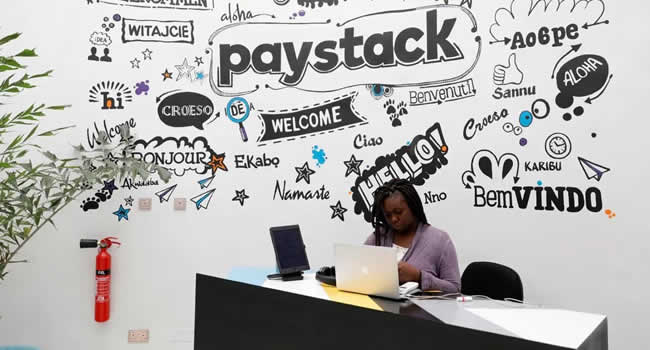Tech
Paystack launches venture in South Africa. 2 other things and a trivia

This line-up of stories will help you discover the latest happenings around the tech world, today.
1. Paystack launches venture in South Africa
Barely 6 months after being acquired by American Fintech giant Stripe, Paystack has launched its footprint in South Africa.
The development will see the Nigerian fintech startup enter one of Africa’s largest markets, South Africa, with a 58 million population potential.
Six-year-old Paystack uses its API to help businesses process payments, with an active operations in Nigeria and Ghana.
According to Paystack, the South African expansion began with a six-month pilot phase that started a month after Stripe’s acquisition.
Towards achieving the phase, the company revealed that it worked with different businesses while growing a local team to handle on-the-ground operations.
Khadijah Abu, Paystack’s head of product expansion, noted that the pilot in South Africa was centred on removing tedious paperwork as they solve the challenge of B2B payments.
She said: “For many businesses in South Africa, we know that accepting payments online can be cumbersome. Our pilot in South Africa was hyper-focused on removing barriers to entry, eliminating tedious paperwork, providing world-class API documentation to developers, and making it a lot simpler for businesses to accept payments online.”
Tech Trivia: Which of the following ecommerce solutions was built by Nigerians?
A. Ebay
B. Amazon
C. Listbuy
D. Alibaba
Answer: See end of post.
2. Nigeria’s Farmula launches venture to connect food producers to retailers
Nigerian agri-tech startup, Farmula has announced launching its food solution venture as a B2B digital infrastructure that makes it possible for farmers and bulk buyers to directly interact.
In 2019, the startup was founded by Vivian Opondoh, Ahmed Madani, Jackline Kimani and Ibrahim Abdulmalik with an aim to drive up margins on both ends of the chain.
The founders, which met while taking part in the Meltwater Entrepreneurial School of Technology (MEST) training programme in Accra, designed Farmula to allow buyers post their requirements on its platform.
The business model matches buyers with affordable and quality produce while the team handle payment and the delivery of the produce within 24 hours.
Speaking to journalists, Abdulmalik said the founding team had noticed that B2B sales and distribution of food in Nigeria, and Africa as a whole, was largely inefficient.
READ ALSO: Founders Factory Africa to support African agritech startups. 2 other things and a trivia
He said: “The first is that almost every aspect of food distribution is still manual – everything’s still on paper. So, it’s not just the sales, but even collections, reconciliation, communication, and gathering data, the whole process is still manual, and that is a core problem. We still don’t have a digital food distribution system.”
3. Nigeria’s Rabawa secures $163k funding from VC
Social and video commerce platform, Rabawa, has jointed a list of venture that secured funding in May, 2021, raising US$163,000 in funding to help it scale its operations.
Rabawa allows resellers to leverage social media for curating, promoting, and selling products from manufacturers and distributors to end-users.
The team noted that the core of the venture was to give resellers access to a virtual shop and thousands of products from trusted suppliers.
Although, the startup launched less than a year, today, over 5,000 resellers and 1,000 suppliers are currently registered on the platform.
With the new fund, the startup plans to scale even more quickly after raising funding from US-based VC firm Aptive Capital.
Speaking on the development, Olayinka Akinkunmi, the company’s chief operating officer (COO), noted that the US$163,000 in capital will be utilised to boost Rabawa in its aim of becoming a key player in Africa’s e-commerce space by utilising social and video commerce.
Tech Trivia Answer: Listbuy
Listbuy is a social commerce platform, built by Nigerian techprenuers, that enables small businesses and individuals create and share their online stores, accept payment and allow users ship products to their customers seamlessly, and on the go.
Join the conversation
Support Ripples Nigeria, hold up solutions journalism
Balanced, fearless journalism driven by data comes at huge financial costs.
As a media platform, we hold leadership accountable and will not trade the right to press freedom and free speech for a piece of cake.
If you like what we do, and are ready to uphold solutions journalism, kindly donate to the Ripples Nigeria cause.
Your support would help to ensure that citizens and institutions continue to have free access to credible and reliable information for societal development.

























